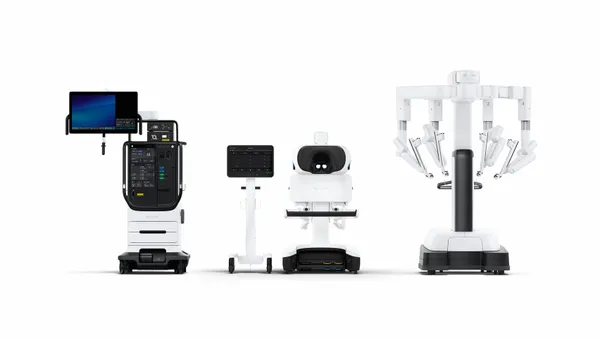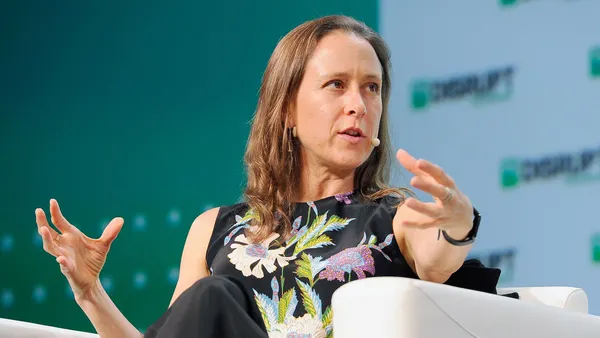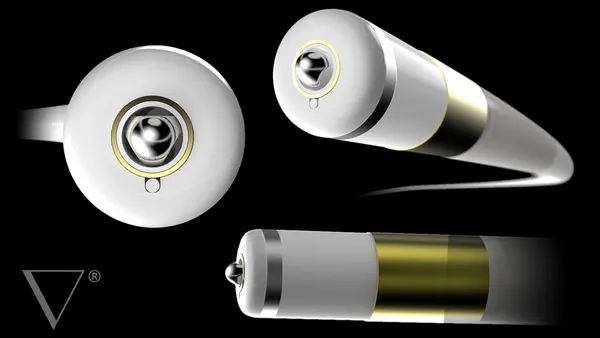UPDATE: March 26, 2020: Senseonics on Thursday took further steps to preserve cash, and cited the coronavirus pandemic in suspending its prior financial guidance for the year.
It said in a regulatory filing it's halting sales of its 90-day Eversense CGM to new patients, noting it will continue to distribute to current customers "for the foreseeable future." It also warned it may altogether cancel its Eversense Bridge program, which it launched a year ago to have individuals sorting out payment logistics start on its therapy sooner. However, the company confirmed it's forging ahead with development of a 180-day version of its CGM.
Analysts at Stifel predicted the latest moves would put Senseonics with cash of about $15 million by the end of the first quarter, enough to survive for another quarter "or so," per a note to investors.
Dive Brief:
- Diabetes technology company Senseonics said Monday it will "explore potential strategic alternatives,"including the possible sale of the company.
- A day earlier, the maker of the Eversense implantable continuous glucose monitor (CGM) paid off an outstanding loan obligation and terminated the agreement, eliminating its secured debt.
- The Germantown, Maryland-based company is running out of cash in the CGM market crowded by larger players.
Dive Insight:
Senseonics was already struggling with disappointing revenue growth as its implantable CGM failed to gain the traction and scale that rival technologies such as Abbott's FreeStyle Libre have achieved. Earlier this month, Senseonics said a revised distribution deal with Roche in Europe would hurt sales outside the U.S., which it forecast would decline by a third in 2020.
Roche and Senseonics revamped their agreement, first established in 2016, amid a buildup in inventories after purchase requirements exceeded expected demand for the device. In the U.S., where its sales are much smaller, Senseonics had forecast a doubling of revenue in 2020.
Different from FreeStyle Libre, which uses a wearable sensor, the Eversense CGM employs a small sensor implanted under the skin that communicates with a smart transmitter worn over the sensor. Glucose data are automatically sent every 5 minutes to a mobile app on the user's smartphone.
In announcing the termination of its loan agreement with Solar Capital in a regulatory filing, Senseonics said it was unable to negotiate a waiver from the lender to avoid defaulting on its outstanding loan. It then paid $48.5 million in total obligations, including the principal amount and interest on the loans, a payoff fee of 6.45%, a prepayment premium of 3%, and other obligations.
"In light of this repayment, the Company is in discussions with new financing sources," the Senseonics announcement said Monday. "The intention is to provide sufficient funding flexibility to enable the Board to complete its strategic review and provide stability to the Company in light of the ongoing market dislocation caused by the COVID-19 pandemic."
Analysts at Stifel estimated between the debt pay-down and first quarter cash burn, Senseonics likely has around $30 million in cash. Even without a debt pay-down, the company predicted during its first-quarter earnings call its cash would last into the fourth quarter of 2020.
"Given our sense that the balance sheet likely has roughly one-quarter of cash, we expect [Senseonics] to move quickly — one way or the other — through this process," analysts at Stifel wrote in a note to clients following the news Monday.
Senseonics said it has hired Moelis & Co. as its financial adviser and Cooley LLP as its legal adviser.












